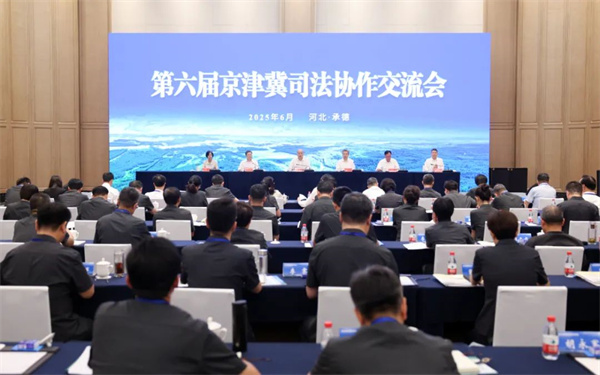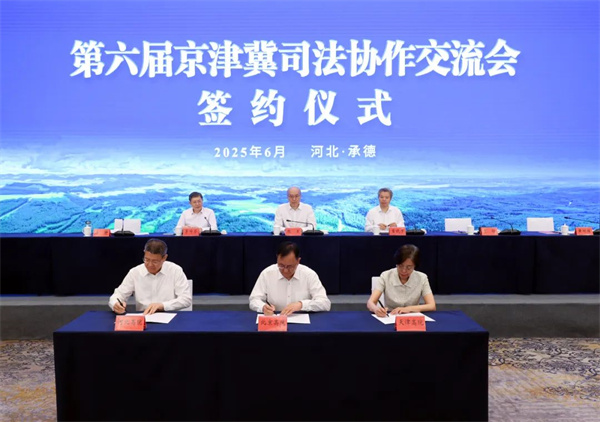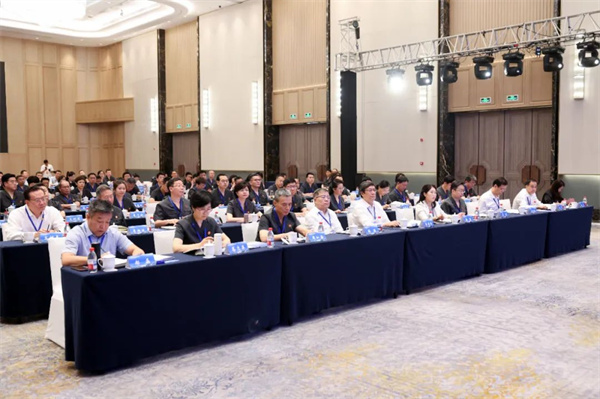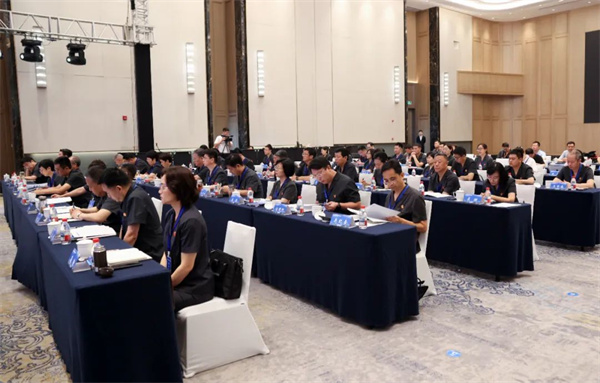Zhang Jun advocates coordinated dispute resolution for Beijing-Tianjin-Hebei region to bolster high-quality development
The 6th Beijing-Tianjin-Hebei (BTH) joint conference on judicial collaboration convened in Chengde, Hebei province, on June 25. Judges, scholars, and policymakers gathered to discuss strengthening cross-regional judicial collaboration. Zhang Jun, president of the Supreme People’s Court (SPC), attended the opening ceremony and delivered remarks.

The 6th Beijing-Tianjin-Hebei joint conference on judicial collaboration convenes in Chengde, Hebei province, on June 25. Zhang Jun, president of the Supreme People’s Court, attended the opening ceremony and delivered remarks. [Photo/court.gov.cn]
In recent years, courts in the BTH region — under the guidance of the SPC — have continuously expanded judicial collaboration by institutionalizing communication mechanisms, implementing cooperative measures, and standardizing collaborative practices. These efforts have provided solid legal support for the coordinated development of the region.
Zhang emphasized that the BTH region has entered a new stage of integrated and high-quality advancement, requiring courts to better align their work with regional development priorities. He called for enhanced judicial support in areas such as the relocation of non-capital functions from Beijing, development of the capital metropolitan area, industrial upgrading, and the joint provision of public services. Courts should refine cross-jurisdictional coordination mechanisms to meet both current demands and long-term goals with more efficient judicial services, he added.
He also underscored the importance of balancing high-quality development with high-level security, urging courts to strengthen early identification and effective resolution of disputes that frequently occur in the region and establish more responsive working mechanisms for complex cases. Efforts must be intensified to protect the rights of private enterprises and improve the handling of foreign-related disputes, alongside strict implementation of the Private Sector Promotion Law, Zhang said. He also urged courts to make full use of the diversified dispute resolution mechanism to handle cases with impartiality and empathy, helping establish clear behavioral norms and convey shared social values.
Zhang called for further advancement of judicial reform with the support of digital tools, and improved court management across adjudication, administration, and personnel development. By aligning judicial services more closely with the evolving needs of the integrated development of the BTH region, courts should refine measures and tasks, particularly in key areas, to ensure tangible results in judicial collaboration, he noted.

Kou Fang, Li Jing, and Huang Mingyao, presidents of the high people’s courts of Beijing, Tianjin and Hebei, sign a joint action plan on judicial support for Beijing-Tianjin-Hebei coordinated development (2025–27). [Photo/court.gov.cn]

Guo Jingtao and Han Li, deputies to the National People’s Congress, and Han Qian, a member of the Chinese People’s Political Consultative Conference National Committee, attend the opening ceremony. [Photo/court.gov.cn]

Representatives from the Supreme People’s Court, local departments in Chengde, academic institutions, and courts across the region attend the conference. [Photo/court.gov.cn]
The opening ceremony was presided over by SPC Vice-President Mao Zhonghua. Dong Xiaoyu, secretary of the Political and Legal Affairs Commission of the Communist Party of China Hebei Provincial Committee, delivered welcome remarks. The presidents of the high people’s courts of Beijing, Tianjin and Hebei presented recent achievements and signed a joint action plan on judicial support for BTH integrated development (2025–27).
Also present were two deputies to the National People’s Congress, a member of the Chinese People’s Political Consultative Conference National Committee, and representatives from the SPC, local departments in Chengde, academic institutions, and courts across the region.







